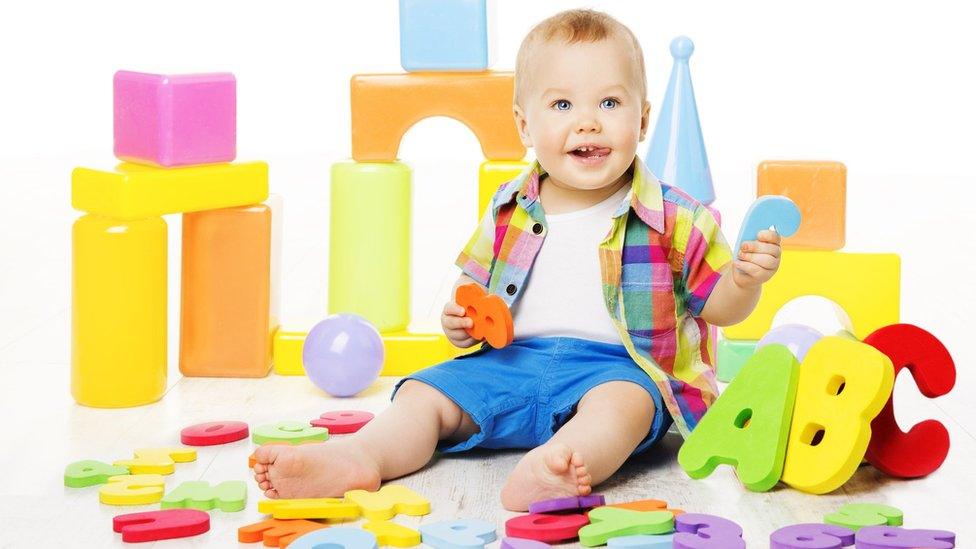Toddler speech 'key issue' for education
- Published

Toddlers who have speech difficulties often struggle to catch up with their peers, according to Save the Children
Toddlers struggling with their first words is the biggest single issue affecting child development in Scotland, according to a charity.
Save the Children said more than 7,000 pre-school children have problems with speech and language development.
And babies from poorer families are twice as likely to have delays or difficulties than those from more affluent homes.
It said tackling the issue was key to closing the attainment gap in schools.
The Scottish government held a major education summit on Thursday aimed at improving school standards.
It has made closing the attainment gap between the wealthiest and most deprived pupils its top priority, with the first minister pledging to ensure that every child has the best chance of succeeding in life, regardless of their background.
In its own research, Save the Children said "poverty is damaging too many children's education before they have even set foot in a classroom".
It said children who struggle as youngsters may never catch up with their more affluent peers.
And it said difficulties with speech among toddlers were the "early warning sign" that has so far been overlooked.
The charity called for decisive action in the Scottish government's forthcoming education plan to tackle the problem.
It suggested three actions be included in the plan:
Qualified teachers and graduates with speech and language expertise in every nursery
Training for all early-years workers in how to support language development
Support for parents to help encourage their child's speaking skills
Save the Children's research found children who struggle with speech and language in their early years are often still behind their peers in key literacy skills at age 11.
And it suggested that one in five children in the country growing up in poverty will not be reading well by the time they leave primary school.
The most recent Scottish government figures from 27-30 month child health checks found difficulties in speech, language and communication was the area with most concerns recorded.
A total of 14% of children of the nearly 60,000 surveyed had problems in this area.
Save the Children policy manager Vicky Crichton said while most children in Scotland were developing well, "a significant number of children are showing signs of struggling before they have even reached their third birthday".
'Golden opportunity'
She added: "This education plan is a golden opportunity for the government to stop the attainment gap in its tracks and take some truly ambitious steps at the start of a new parliament.
"At the moment, poverty is damaging too many children's education before they have even set foot in a classroom.
"If we're serious about closing the gap we must seize the chance to take action - not just in our schools, but to support children's learning in their first few months and years."
A spokeswoman for the Scottish government agreed that the early years were crucial in child development, and said a report published last year showed vocabulary at age three was improving.
There has also been an increase in parents who look at books or read stories with their 10-month-old child every day or most days, she added.
The spokeswoman said: "We want to build on these positives and continue to improve literacy and numeracy in the early years and encourage parental involvement in their child's education as this is key to raising attainment.
"That's why we are investing in initiatives like PlayTalkRead, Bookbug and Read, Write, Count which all encourage parents to play a part in their child's learning from the start, particularly around reading and language development."
- Published29 February 2016
- Published29 February 2016